How to keep snakes away? (effectively)
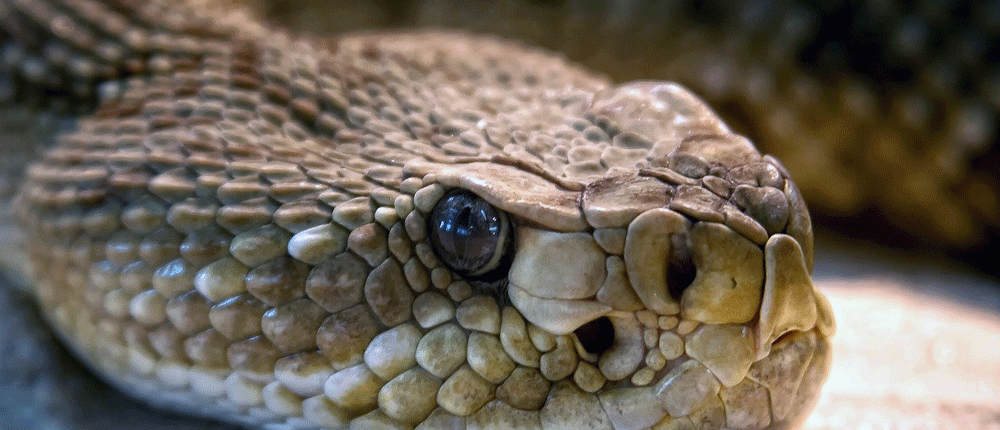 Many people are positively terrified of snakes and a lot of homeowners worry incessantly that a snake might attack them or their loved ones while out in the yard.
Many people are positively terrified of snakes and a lot of homeowners worry incessantly that a snake might attack them or their loved ones while out in the yard.
These fears are well-founded and just, since there are some terrifying snakes out there who will bite you if they get a chance. So you want to be prepared and do what you can to keep these snakes as far away as possible.
First things first, know your area.
While a certain amount of worry in this area can prove beneficial and ensure that you are prepared, there is no point in worrying over something that won’t happen, is there?
So the first thing you need to do is some research on the area you live in and find out which snakes are most likely to slither into your yard. Being scared of some exotic snake will do you no favors if you overlook the less famous (but still potentially deadly) snakes that are literally in your back garden.
Find out what snakes inhabit your area and if possible, read a little about how these snakes behave. Some species are more outgoing than others, same as with people. Some will venture close to human civilization, while others will not.
Also, keep an eye out for how aggressive the snakes in your area are. For example, the timber rattlesnake (which usually lives in the eastern half of North America) is a very dangerous individual. He has long, menacing fangs, is very large, and has a potent venom. However, the timber rattlesnake is known for his patience. Considered one of the most patient snakes in the world, the timber rattlesnake will give you quite a long time to get away, issuing a lengthy warning with their obvious rattle, before actually attacking you.
Second, remember that not all snakes are created equal.
In other words, having a harmless snake inhabit your back garden can actually be a good thing, as they tend to eat pests such as slugs and even rats. This is why it’s important to know your snakes. The majority of snakes (2,400 out of 3,000, according to the WHO) are not dangerous, so bear that in mind before you judge.
Next, do all you can to secure your property. Think about what you’d do if you were a snake. You’d first want to look for a place in which you can hide, right? So the first thing you want to do is get rid of any potential hiding places.
This is great because it doesn’t only serve to deter snakes, but also other, less dangerous garden pests.
Snakes like to hide in:
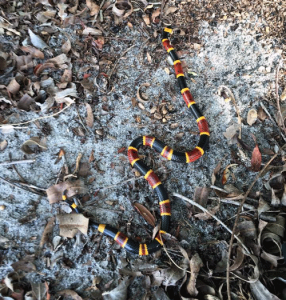
- Cracks;
- Crevices;
- Wood piles;
- Damp areas;
- Holes;
- Darkness.
So you want to make sure you don’t have any dark holes around the house. Take your time in inspecting the outside of your property, to ensure you don’t miss anything. Make a note of all the potential nooks and crannies in which a snake might slither and repair them as soon as possible. Get rid of any wood piles in your yard and if you must, store all firewood in a secure, locked container.
Snakes might also make a hiding spot inside damaged pipes, ducts, and vents, so make sure you take care of those also.
Repair your screens.
It seems an obvious one, yet many overlook it. You’re probably in the habit of leaving your window or door open, with just the screen on. If so, you want to make sure there are no holes in these screens, because that might be an invitation the snake finds hard to refuse. This goes for other pests as well, so it’s a double win for you.
Trim your lawn.
It’s no secret that snakes prefer living in the tall grass, so by neglecting your lawn for months on end, you’re practically creating an ideal habitat for them. And that’s not what we want to do. So you want to mow your lawn often. Short, trim grass is unappealing to snakes for an obvious reason: it exposes them to predators. No, not you, but to coyotes, hawks, and that sort of thing. So snakes tend to avoid short grass for their own safety. Naturally, this applies to shrubs and trees also.
Don’t soak your lawn.
Sometimes, we tend to over-water our lawn. I mean, what’s a little water going to do, right? Well, as we’ve seen above, damp places are considered inviting by snakes, so by over-watering your grass, you might just be giving the snakes an open invitation.
Don’t leave pet food out.
It’s not the snakes themselves that care about your dog’s treats. It’s other insects and rodents that might be attracted by open food sources. These rodents then attract snakes, which unsurprisingly are also attracted by open, easily available food sources. And that’s how you get snakes.
Remember: this also applies to bird food. So if you happen to have a bird feeder in your backyard, keep it clean and for safety move it as far away as you can from your house.
Maybe put up a perch.
Owls and hawks are mighty and beautiful creatures, and they can serve as highly efficient guards of your backyard. They can be attracted to a property by strategically installing a high pole, on which they can perch. Obviously, snakes are deterred by the presence of a hawk or owl, because they are natural enemies, so they obviously won’t go near your yard, but even if they do, the hawk or owl is likely to chase them away.
Put in a snake-proof fence.
There are many low anti-snake fences available out there. They are made from steel mesh and will need to be dug deep into the ground, but may we remind you that the effort is definitely worth it.
Overall, there is no sure-fire way to keep snakes away, but there are many, highly effective methods to deter them from approaching your property.
How to get a snake out of my house?
All snakes, whether venomous or not, will not pursue a human being unless provoked. When trying to get a snake out of your house, it is important to read its body language. If you see that the snake has coiled itself up and opened its mouth wide, then you should know that it sees you as a threat and is ready to attack. When this happens, you should step away slowly to avoid any further risk.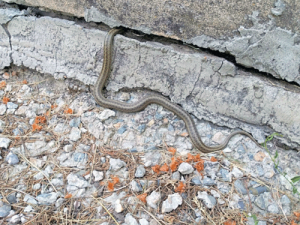
When trying to get rid of a snake in your house, it is important to know what kind of snake you’re dealing with. It is advisable not to handle poisonous snakes. The room the snake is enclosed in should be completely closed off until a professional snake catcher arrives. If possible, you can safely toss a large bin over the snake and weigh it down with a heavy object in order to restrict its movement. Do not underestimate the striking distance of a venomous snake. Some distinctive qualities of venomous snakes are fat bodies, big fangs, and slit-like eyes. You should also watch out for a rattling tail.
If you find a snake in a room leading outside, you can open the door and gently guide the snake out with a stick or broom. This risk should only be taken if you’re certain the snake is non-venomous. Don’t push the snake out with the broom roughly because it’s likely to attack. Most snakes leave the house on their own if given the opportunity and time. This means that you can just shut the inside doors and leave the door leading outside open so the snake can crawl out.
This is a simpler and more reliable method than a more aggressive hands-on approach. Snakes have an elevated sense of smell and are ultra-sensitive to odors and fumes. There are several natural products that work well as snake repellents due to their odor. Some of the more common ones include:
- Naphthalene:
Place mothballs (the main ingredient is naphthalene) where the snake is hiding in order to make it escape due to its irritating scent. This is one of the most common snake repellents and is known to work effectively. - Sulfur:
You can place powdered sulfur around your home and once the snake slithers across it, its skin will be irritated so it will escape and not return. - Ammonia:
Spray this around any areas with snakes in your home. Another valid option is to soak a rag in ammonia and place it in an unsealed bag near any areas inhabited by the snake in order to drive it away.
Another easy option to get a snake out of your house is by having a pet like a cat, which is a natural predator and will kill any snakes, inside your house. Besides this, you can catch the snake with an indoor trap. A glue trap is one of the most common types of traps used for catching snakes inside your home. This trap is completely covered with ultra-sticky glue that securely holds snakes. It can be placed near the area inhabited by the snake in order to effectively trap it.
How to get snakes out of my attic?
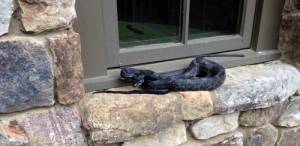 There is nothing more important than having a home that is safe and free of reptiles that can endanger your life. The moment that sense of being secured gets taken away from you while at home, you will no doubt begin to feel uncomfortable and lose your peace of mind. This sense of insecurity comes with you finding a snake around your home.
There is nothing more important than having a home that is safe and free of reptiles that can endanger your life. The moment that sense of being secured gets taken away from you while at home, you will no doubt begin to feel uncomfortable and lose your peace of mind. This sense of insecurity comes with you finding a snake around your home.
We all tend to admire snakes at the zoo, but when you have them around your home, especially in your attic, it’s an entirely different story. This usually leaves many homeowners with the thoughts of how to gets snakes out of their attic at all costs. Right here, we will be sharing guiding steps on how you can get snakes out of your attic.
Step 1:
Start by Inspecting the Exteriors of Your Attic to Identity Any Possible Snake Activities
To get rid of the snakes in your attic, the first thing you have to do is to figure out exactly where the snakes are. Naturally, snakes are camouflage reptiles, hence they tend to blend in with any environment they find themselves. This makes it quite difficult to easily find them and get rid of them.
The best possible way to find snakes is to look for the snakes in obvious places besides your attic. In most cases, people often notice their activities such as droppings and shed skins in the attic, but never really find the snakes there and end up assuming the snakes are no longer harboring in their house. This is a misguide and will often throw you off track.
To avoid this, you need to investigate the nooks and crannies around your attic, lift items that have been placed in a particular position for weeks, and other places that might make a good home for snakes. Moving objects around will lure the snake out of its hiding, allowing you to capture it. While doing this, you need to have your protective equipment on in case the snakes you are looking for are venomous.
Step 2:
Remove or Trap the Snakes
If you are lucky enough to find the snake, what you need to do is force it to enter either a container or a bag where you are quite sure it can't escape from using a long tool. Once you’ve noticed that it has safely entered the bag, close it up, and take it to any animal control close to you. On the other hand, if you were unable to find the snake, all you need to do is set a plastic trap in your attic. This is the safest and best possible way to catch snakes in your attic, but you will have to be inspecting the plastic trap every day to see if it has captured the snake.
Step 3:
Repair Every Possible Point of Re-entry
After getting the snakes out of your attic, you need to make sure you won’t be experiencing them again. To ensure this, you need to repair every possible point of re-entry into your attic, seal off cracks, crevices, or holes around your home and keep it tidy.
How to Make My Home Less Attractive to Snakes
For every homeowner, the possibility of having snakes invade their homes is a big concern. This is true even though not all snakes that people encounter are dangerous. But there are few species with venoms that are capable of sending a man to an early grave.
This simply means that as a homeowner, you shouldn’t take chances and do everything humanly possible to make your home less attractive to snakes. Perhaps you don’t know how to achieve that. Right here, we will be sharing simple but effective guides for keeping these reptiles away from your home.
1. Eliminate Rodents and Other Food Sources.
Just like every other animal out there, snakes are usually in search of food and are often attracted to places where there is an abundance of it. Since rodents are their favorite, they tend to stay around where they can easily find rodents to feed on.
To make your home less attractive to rodents, you need to find a way to eliminate the rodents in your home and clear all traces of their activities, which includes sand-filling all the holes in your yard and removing their droppings. By doing this, you are eradicating the scent trails that attract snakes.
2. Do Some Home Improvement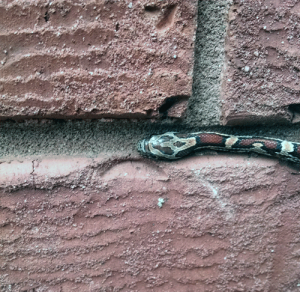 When it comes to making your home less attractive to snakes, this is one of the best things to do. Home improvement involves searching for cracks that are bigger than a quarter of an inch in diameter and sealing them up.
When it comes to making your home less attractive to snakes, this is one of the best things to do. Home improvement involves searching for cracks that are bigger than a quarter of an inch in diameter and sealing them up.
For best results, you can also install a 24-inch-high, rigid fence around the yard. The mesh of the fence should be smaller than a quarter of an inch and it is should be buried deep into the ground to prevent the snake from going beneath.
3. Remove Mulch, Debris, and Leaf Piles from Your Lawn
Apart from the food benefits that tend to attract snakes to people’s homes, snakes are also in search of shelter. Usually this is someplace humid to make them feel more comfortable. The mulch, debris, and leaf piles in your lawn offer just that. If you have any of these near your home, snakes will no doubt come to your home to look for shelter.
To prevent this, you need to remove the mulch, debris, and leaf piles from your lawn and keep everywhere clean at all times. By doing this, snakes will have nowhere to hide in case they come to visit.
4. Burn the Fire Wood in Your Home
Burning firewood during the winter months is very amusing. But how do you ensure the woodpile won’t be a snake den during the summer. To make your home less attractive to snakes, you need to burn this wood in your home and make sure your home is tidy and neat.
How to Keep Snakes from Getting into Your House
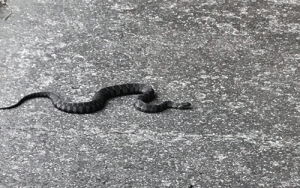
What can be creepier than having a snake sneak up on you, making your fight or flight hormones rage through your system as a result of fear? Not everyone likes to have snakes around their homes, be it venomous snakes or those that are not. If you in any way get irritated when you see a snake, you need to find every possible way to keep it from getting into your house.
To help you with this, we have prepared a straight forward guide on how to keep snakes from getting into your house. With these guidelines, you will be able to prevent snakes from getting into your home. Here are the guidelines to help keep snakes from getting into your house:
1. Use Snake Repellent
When it comes to keeping snakes from getting into your home, the best thing you can do as a homeowner is to use a snake repellent. However, the use of artificial repellents is not advised because they often cause more harm than good to the ecosystem.
The only available option that is environmentally safe to an extent is ammonia. This is a DIY snake repellent often used in homes where the activities of snakes are high.
To use this snake repellent to keep snakes from getting into your house, all you have to do is soak a small rag in an ammonia solution and put the rag in an opened plastic bag. Then place the plastic bags at strategic locations around your house. The smell of this will keep snakes away from your house. In case you don’t have access to ammonia, another safe alternative is the mixture of cinnamon and clove oil. Sprinkle the mixture around your house, especially in damp places.
2. Patch Up All The Holes In Your House
Snakes are silent reptiles, they will sneak into your house through small holes without you knowing and move around until they find a place suitable to stay. To prevent this, you need to locate all the holes in your house, most especially around wiring and plumbing areas, and seal them appropriately with spray foams. For door bars and frame sealings, use weather strippings to seal up openings wider than a quarter of an inch.
While doing this, you need to be very careful because there might be snakes already in those holes.
3. Cover Up Vents
The vent is another possible mode of entry into your house if it is left open. To ensure you don’t have snakes entering your home, you need to cover the vents in your home with a steel mesh that is no wider than a quarter of an inch. With this in place, it will be impossible for snakes to enter your house.
4. Install A Snake-Proof Fence
Lastly, if you want additional protection you can decide to install a snake-proof fence. There are three major types of snake-proof fences, these include catch net fencing, plastic sheeting, and steel mesh. You can choose any of these and install it in your home to keep snakes out.
